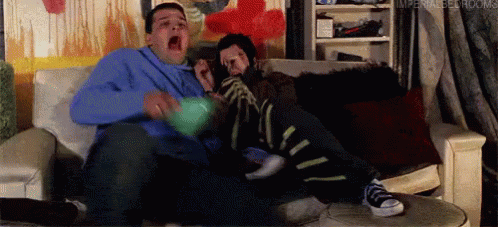GENRE
It, Parasite, The Conjuring, Annabelle, Poltergeist, and Hereditary. These are among some of cinemas most classic horror films, but have you ever stop to ask yourself why. I mean other than the iconic jump scares and the horrifying nightmares viewers are left with for weeks, what connects these films? The beauty of horror films come from the addition of a series of elements and choices that all come together to create the long lasting horror that leaves you checking under your bed for the next couple of weeks. With Ancient Greek origins, the horror genre originally manifested from folklore and religious traditions that told stories of the afterlife, evil, and the demonic. As the genre started to develop productions such as Frankenstein and Pliny the Younger started to engineer what horror would look like for generations to come.
Today the genre is fully developed and is portrayed in many different ways. The typical target audience for the horror genre today is anywhere form 15 to 25 year olds. According to research this is because young adult are the ones who historically enjoy thrills. Therefore, these thrillers are typically better enjoyed by teens and young adults.

Horror films tend to have similar conventions that allow its fanatics to recognize the genre, however, there have been films that have challenged the typical conventions making them original and unpredictable. As far as the Mise en Scene of horror films, the most common setting is in an abandon or isolated location. For example, in films such as Chernobyl Diaries the location is at the town of Pripyat, Ukraine nearby Chernobyl nuclear power plant that has been abandon since 1986. This is done to create the situation where the character or characters are alone and vulnerable with no way of getting any help leaving them helpless. Manipulation of weather is another element highly used in the horror genre. A traumatic thunder storm will usually be used to further the feeling of isolation. To enhance the sinister and dark feeling the set design could include props such as weapons, antiques, and/or paintings.
 |
| 'Chernobyl Diaries(2012)' |
 |
| 'The Ring(2002)
Red, however, is used to create the feeling of danger and violence. Blood being one of horror's most conventional element, the use of reds not only creates a feeling of unsettlement, but it is also used as an identifying element for its audience. It is impossible to mention the use of reds in the horror genre with out referring to Stanley Kubrick's The Shining. In this case, red is symbolizing the evil that is surrounding the family and 'the devil' in some way.

'The Shining(1980)'

'The Descent(2006)

'Us(2019)'
Some of the most recognizable conventions of the horror genre include; lighting, sound, and characters, to name a few. The lighting in horror films is used to create shadows that make the views feel uneasy and scared. The stereotypical lighting in horror films is dark and gloomy, this helps to enhance the mood in the film. The audio in any film, but particularly in horror films, is essential for the filmmakers to create an enhanced feeling. With horror films, the filmmakers are usually trying to build up the suspense and tension. To do this, filmmakers will make use of diegetic sounds which exaggerate tension or fast, and/or loud non-diegetic sounds which will create the typical "jump scare" associated with the genre.
Jordan Peele's Get Out, John Krasinski's A Quiet Place, and Ari Aster's Hereditary were the 'it' movies of 2017, 2018, and 2019, that completely changed the game for horror films. Grossing a joint total of $96 billion on their opening weekends, these films revolutionized the horror genre's marketing and social strategies while fully embodying the horror genre. A Quiet Place did something completely atypical to what typical marketing usually looks like for horror films, they were able to appeal to women and an audience of over 50. Above I discussed the fact that the typical target age for horror films are anywhere from 15-25 year olds, which is why appealing to an older audience is very hard for anyone working in this genre. Although these films did things very differently which resulted in a very good turnout, it is worth mentioning some of the typical 'must-do's' when marketing for an upcoming horror film. Teasing the monster or creature is very important when promoting a horror film. Teasing the audience about the unnatural devilish force in your horror movie will intrigue the audience and make them want to watch more. Another great marketing technique is taking the promotion offline. Making the trailer for a horror film an experience rather than a simple video clip or online banner, will create 'buzz' about the film as well as give the audience a little taste of what is to come. For example, in promotion for Rob Zombie's new film, it was rumored that the recent clown appearances were linked to the movie.
HORROR FILM WATCHLIST:
1. Us by Jordan Peele
2. A Quiet Place by John Krasinski
3. Hereditary by Ari Aster
4. It Chapter Two by Andrés Muschietti
5. The Sixth Sense by M. Night Shyamalan
|









No comments:
Post a Comment